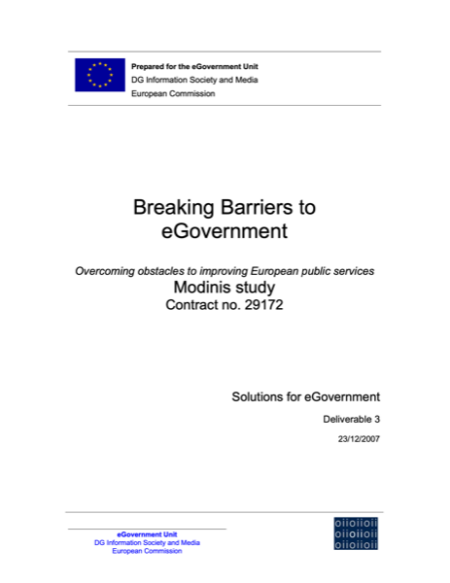
Professor Rebecca Eynon
Professor of Education, the Internet and Society
Rebecca Eynon's research focuses on learning and the Internet, and the links between digital and social exclusion.

The focus of this report, Solutions for eGovernment, is the identification and recommendations of key legal and organisational solutions to overcoming the barriers to eGovernment, such as creating a network of eGovernment champions and establishing a citizen’s ‘eRight’ to access public services electronically. These recommendations are based on results from the European Commission’s ‘Barriers to eGovernment’ project. These recommendations aim to further the objectives of the European Commission’s i2010 eGovernment Action Plan that were developed and reinforced by the Lisbon Ministerial Declaration of the 19th of September 2007: leaving no citizen behind; making efficiency and effectiveness a reality; implementing high-impact key services for citizens and businesses; putting key enablers in place; and strengthening participation and democratic decision-making.
The first section of this report highlights the two main dimensions to the project’s results: the seven major barrier categories identified by the project; and eight key legal areas analysed in detail. Solutions arising from the research are then presented, starting with suggestions for organizational approaches to address a key barrier within each of the seven barrier categories. Summaries are then provided of some key solutions to facilitate smoother eGovernment progress through legal adaptations at European, national, regional and local levels.